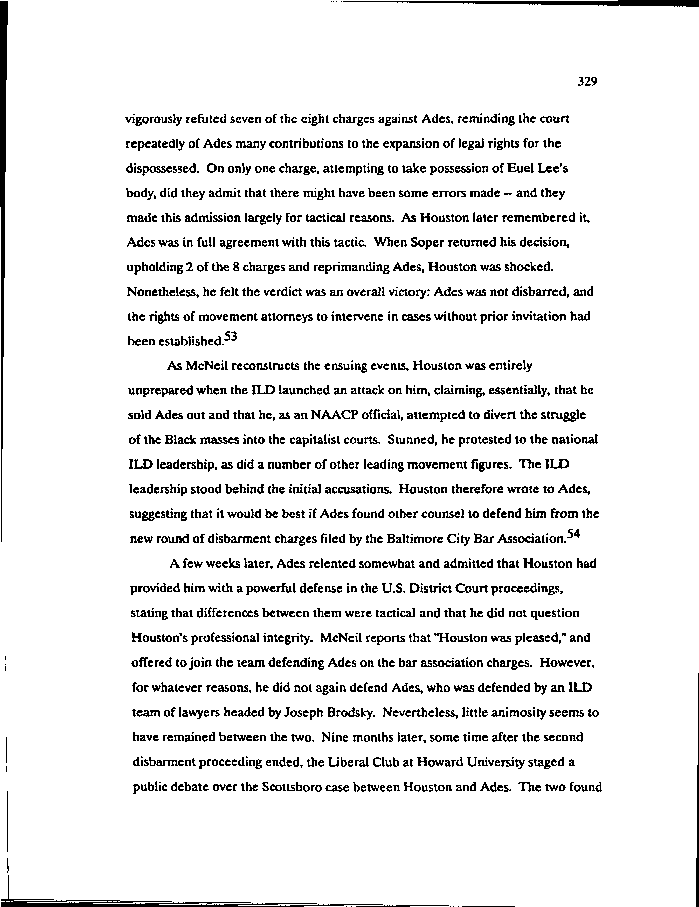|
329
vigorously refuted seven of the eight charges against Ades, reminding the court
repeatedly of Ades many contributions to the expansion of legal rights for the
dispossessed. On only one charge, attempting to take possession of Euel Lee's
body, did they admit that there might have been some errors made — and they
made this admission largely for tactical reasons. As Houston later remembered it,
Ades was in full agreement with this tactic. When Soper returned his decision,
upholding 2 of the 8 charges and reprimanding Ades, Houston was shocked.
Nonetheless, he felt the verdict was an overall victory: Ades was not disbarred, and
the rights of movement attorneys to intervene in cases without prior invitation had
c^
been established. J
As McNeil reconstructs the ensuing events, Houston was entirely
unprepared when the ILD launched an attack on him, claiming, essentially, that he
sold Ades out and that he, as an NAACP official, attempted to divert the struggle
of the Black masses into the capitalist courts. Stunned, he protested to the national
ILD leadership, as did a number of other leading movement figures. The ILD
leadership stood behind the initial accusations. Houston therefore wrote to Ades,
suggesting that it would be best if Ades found other counsel to defend him from the
new round of disbarment charges filed by the Baltimore City Bar Association.-*4
A few weeks later, Ades relented somewhat and admitted that Houston had
provided him with a powerful defense in the U.S. District Court proceedings,
stating that differences between them were tactical and that he did not question
Houston's professional integrity. McNeil reports that "Houston was pleased," and
offered to join the team defending Ades on the bar association charges. However,
for whatever reasons, he did not again defend Ades, who was defended by an ILD
team of lawyers headed by Joseph Brodsky. Nevertheless, little animosity seems to
have remained between the two. Nine months later, some time after the second
disbarment proceeding ended, the Liberal Club at Howard University staged a
public debate over the Scottsboro case between Houston and Ades. The two found
|

